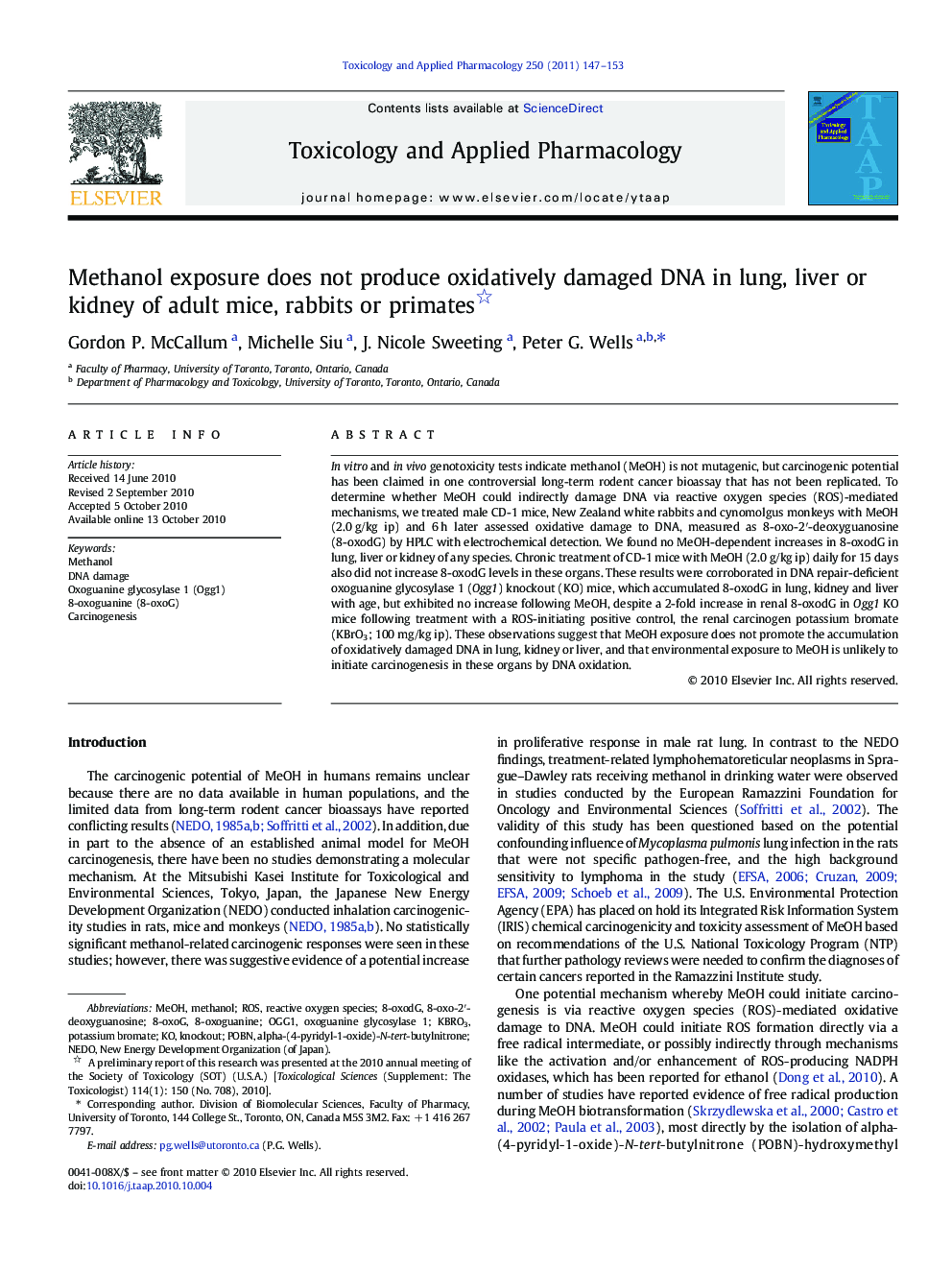| Article ID | Journal | Published Year | Pages | File Type |
|---|---|---|---|---|
| 2569899 | Toxicology and Applied Pharmacology | 2011 | 7 Pages |
Abstract
In vitro and in vivo genotoxicity tests indicate methanol (MeOH) is not mutagenic, but carcinogenic potential has been claimed in one controversial long-term rodent cancer bioassay that has not been replicated. To determine whether MeOH could indirectly damage DNA via reactive oxygen species (ROS)-mediated mechanisms, we treated male CD-1 mice, New Zealand white rabbits and cynomolgus monkeys with MeOH (2.0Â g/kg ip) and 6Â h later assessed oxidative damage to DNA, measured as 8-oxo-2â²-deoxyguanosine (8-oxodG) by HPLC with electrochemical detection. We found no MeOH-dependent increases in 8-oxodG in lung, liver or kidney of any species. Chronic treatment of CD-1 mice with MeOH (2.0Â g/kg ip) daily for 15Â days also did not increase 8-oxodG levels in these organs. These results were corroborated in DNA repair-deficient oxoguanine glycosylase 1 (Ogg1) knockout (KO) mice, which accumulated 8-oxodG in lung, kidney and liver with age, but exhibited no increase following MeOH, despite a 2-fold increase in renal 8-oxodG in Ogg1 KO mice following treatment with a ROS-initiating positive control, the renal carcinogen potassium bromate (KBrO3; 100Â mg/kg ip). These observations suggest that MeOH exposure does not promote the accumulation of oxidatively damaged DNA in lung, kidney or liver, and that environmental exposure to MeOH is unlikely to initiate carcinogenesis in these organs by DNA oxidation.
Keywords
Related Topics
Life Sciences
Environmental Science
Health, Toxicology and Mutagenesis
Authors
Gordon P. McCallum, Michelle Siu, J. Nicole Sweeting, Peter G. Wells,
